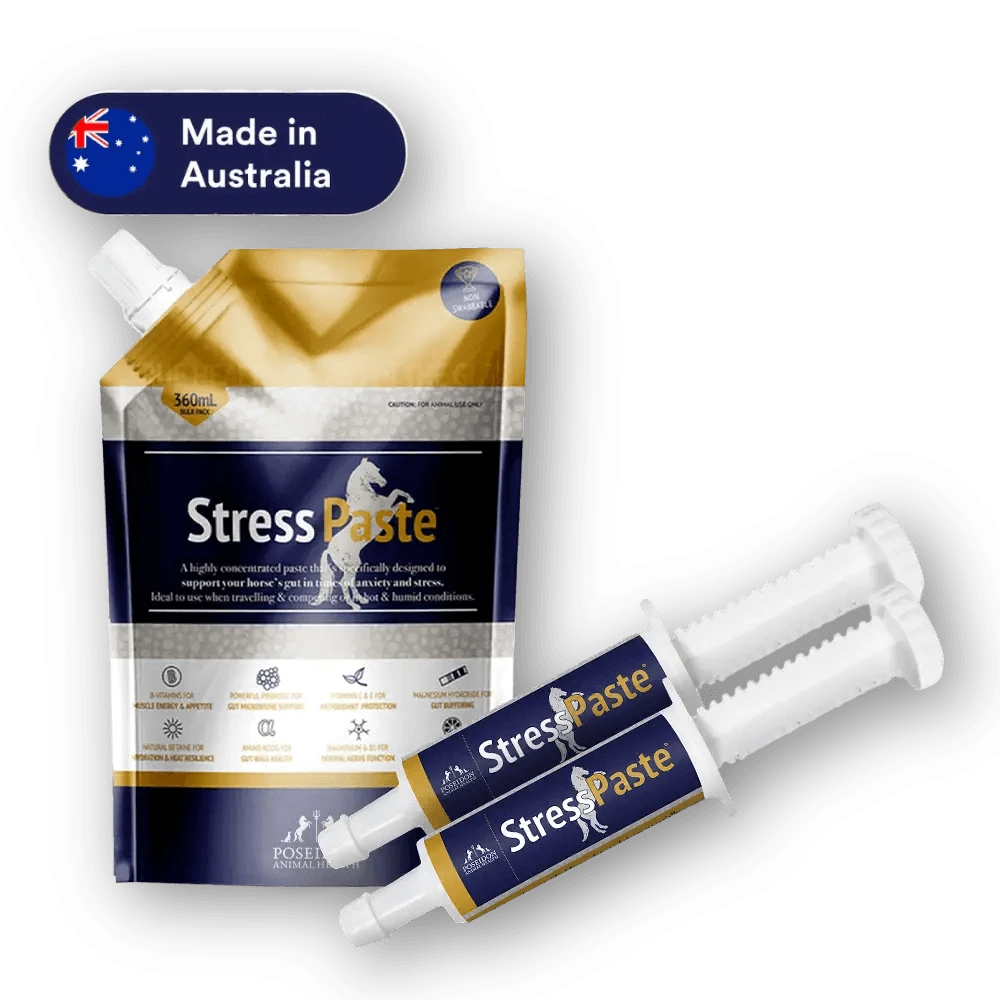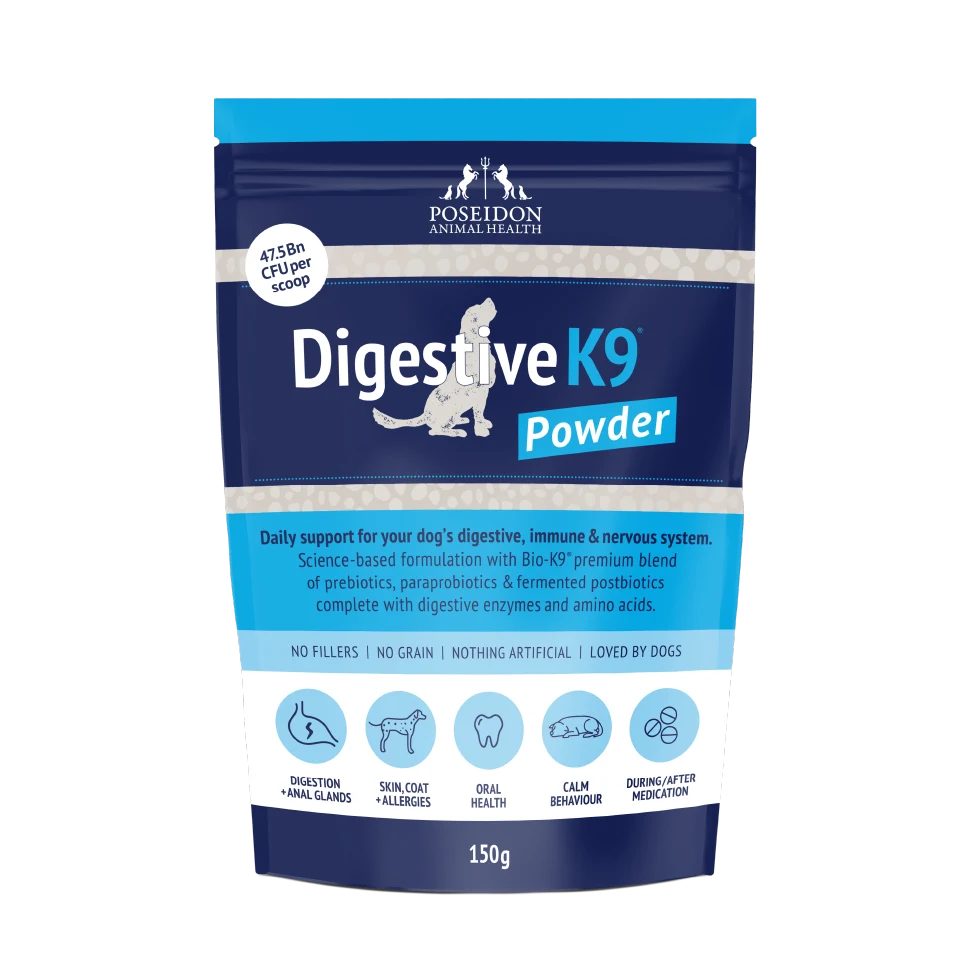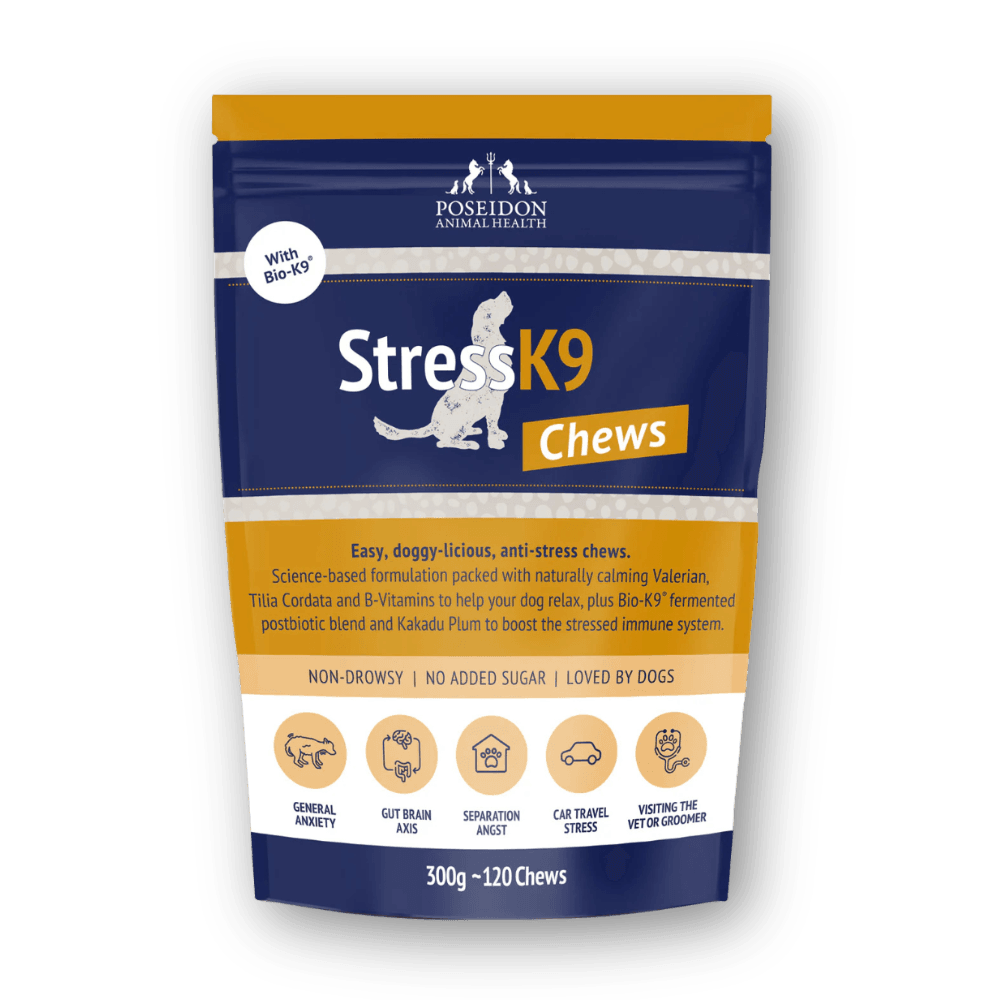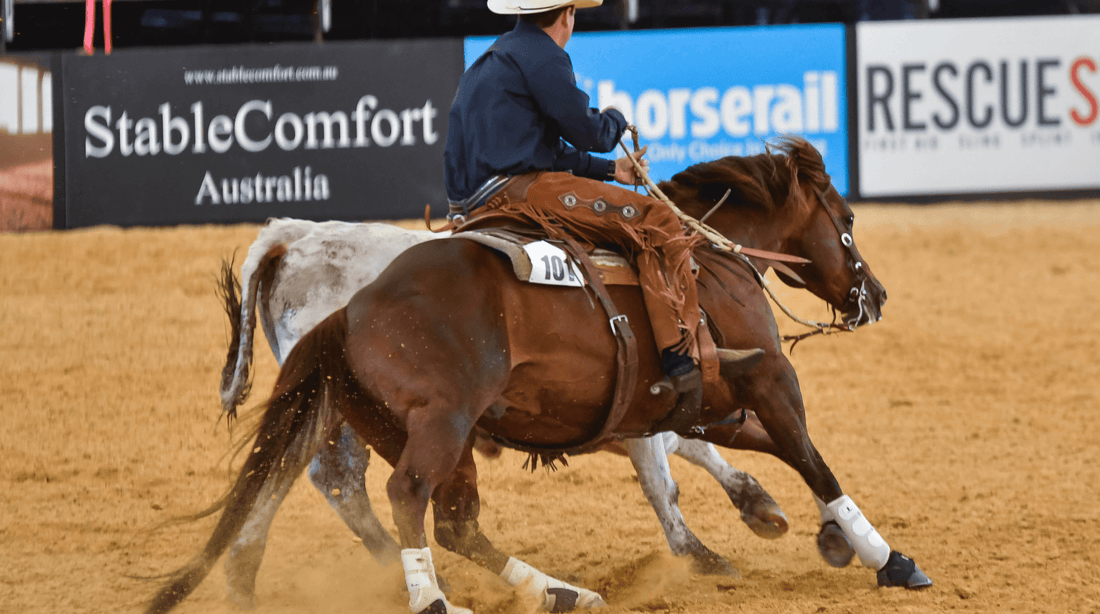
By Dr Nerida McGilchrist - B Rur. Sc (Hon1) PhD RAnNutr
As horse owner, you may see problems like anxious behaviour, girthiness, laminitis, poor performance and weight challenges and accept them as ‘normal’ for your horses. But are they? And if they aren’t, what is causing them?
The fact is, these health problems are not normal for most horses! As the scientific world is starting to understand the important role that gut health in horses plays, we are beginning to really see how poor gut health is so often a cause of all of these issues.
What is gut health in horses?
Your horse’s gut (their digestive tract, including fore gut and hind gut) has many roles. Including:
- The digestion and effective absorption of feed;
- Providing a barrier that will protect your horse from pathogens, bacteria and toxins which can cause disease; and
- Housing the trillions of useful bacteria which play important roles in feed digestion, your horse's immune function and even their behaviour.
The term ‘gut health’ simply refers to how well your horse’s gut is working in these areas.
Your horse’s gut consists of the foregut (oesophagus, stomach and small intestine) and the hindgut (cecum, large colon and small colon). When the entire digestive tract is working well, we say a horse has a heathy gut.
What happens when ‘gut health’ goes wrong?
Stress, incorrect diet or poor feeding management can cause problems like:
- Gastric ulcers - open wounds in your horse’s stomach lining
- Hindgut acidosis – too much acid and a low pH in the horse's hindgut
- Imbalance of bacteria – not enough fibre-loving ‘good’ bacteria
- Weight loss – without a healthy population of fibre-fermenting bacteria your horse can’t digest his pasture or hay efficiently and will start to lose weight
- Behavioural changes – B-vitamin deficiency and possible hormone balance changes can cause hyperactive or anxious behaviour
- Leaky gut – the gut wall gets damaged and allows bacteria, pathogens and toxins into your horse’s body.
Why is good gut health in horses a big deal? Well, the gut is the ‘engine of the horse’. If you want your horse to ‘work well’, you have to look after his gut!
How do gut health problems show up in your horse?
Part of the problem with recognising gut health as a ‘problem’ for your horse is that symptoms of poor gut health can be very subtle, even when issues are severe - and each horse may show different signs for the same issue.
But, some common symptoms to look out for include:
- Picky eating or loss of appetite
- Excessive girthiness
- Uncharacteristically anxious or excitable behaviour, or changes in behaviour like cribbing
- Weight loss or can’t gain weight
- Recurrent, mild colic
- Manure that smells acidic (vomit like) or is softer than normal
- Scouring
- Free fecal water (with water-like manure running out of the anus before, during or after your horse poos)
- Dull coat and/or poor hoof quality
- Difficulty working to the right, ie reluctant to pick up right canter lead, etc
The signs of poor gut health in horses can be subtle, and sometimes difficult to pinpoint. So your assessment of your horse for gut health should also include looking at whether any of the causes of poor gut health are present for your horse.
What causes poor gut health?
There are many things that will contribute to a horse being at risk of poor gut health including:
- A low forage diet – not feeding enough forage starves the 'good' fibre-fermenting bacteria in the horse's gut and increases the risk of gastric ulcers.
- Feeding uncooked grains – feeding grains like barley or corn can send a lot of undigested starch into the hindgut where it feeds and supports the ‘bad bacteria’ who then create acid buildup, hindgut acidosis, gut wall damage and when severe enough, laminitis.
- Competition – long hours of transport, long hours without feed, and stress all combine to create the perfect storm for gastric ulcers and may negatively affect the balance of bacteria in your horse's hindgut.
- Sudden changes in diet – switching food quickly doesn't give your horse’s gut time to adapt, and can cause colic and shifts in hindgut pH and bacterial populations.
- Change in living arrangements – often leads to stress and increases the risk of gastric ulcers.
- Stabling or travel – long hours without feed is one of the worst offenders for disturbing normal gut health and creates high risk for gastric ulcers.
- Big meals – feed and particularly starch will travel too quickly through the small intestine when big meals are fed, which means lots of starch gets dumped in the hindgut to feed the bad bacteria who will then kill off the good, fibre fermenting bacteria.
- Too much anti-inflammatory medication – Non-steroidal anti-inflammatory drugs like Bute are well recognised for increasing the risk of gastric ulcers in the lower section of your horse’s stomach.
- Overuse of antibiotics – Oral antibiotics will wipe out many of your horse’s good bacteria.
Look at your horse’s management and routine? If one or more of these risk factors are present your horse may be struggling with gut health.
What can you do to keep your horse’s gut healthy?
Gut health is so important for our horses. It is the foundation for almost every aspect of your horse’s health and wellbeing. Thankfully, feeding for good gut health is simple. Here are some rules to follow:
Feed plenty of forage
Horses should have 1.5 – 2 % of their body weight a day in forage (grass, hay and chaff). For a 500 kg horse that’s 7.5 to 10 kg/day. Forage feeds the good bacteria, fills the stomach up so its acid can’t splash and burn the top section of the stomach to protect it from ulcers it makes your horse chew and create saliva. Saliva is a buffer and makes the fluid in your horse’s stomach less acidic and less likely to burn holes and make ulcers.
Take care with grain
Whilst grain can provide a horse with calories, grains also contain a lot of starch. Too much starch can mess up the hindgut. If you feed grains, make sure, with the exception of oats, that they are cooked (extruded, boiled, micronized, steam flaked) to make the starch more digestible AND feed grains and grain-based feeds in small meals. No more than 1 kg/feed for a 500 kg horse. Oats can be safely fed whole or cracked, but still feed them in small meals!
Feed a balanced diet
Your horse’s gut needs a lot of different nutrients to repair and maintain itself to do its job well. Make sure the diet you are feeding is meeting all requirements for protein, minerals and vitamins - check out Digestive VM to help with this.
Extra support for great gut health in horses
Sometimes our horses need extra help. And that is why we developed Digestive EQ and Digestive RP. Digestive EQ, with digestive enzymes, essential amino acids, mycotoxin binders, dual acid buffers and a yeast prebiotic and post biotic is designed to give your horse’s gut a helping hand to either recover and repair from damage done in the past, to maintain normal gut function into the future or to help your horse through a particularly stressful period. Digestive RP is an enhanced version of this formula designed to support competitive horses who may be given more grain, or are under extra pressure from more travel, more shows and longer periods without feed. It contains higher levels of buffers and prebiotics, an additional amino acid and an extra digestive enzyme. On high pressure days Stress Paste may also be useful.







